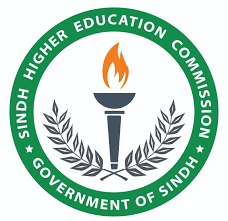- Advertisement -
KARACHI, Feb 20 (APP):Chairman of Sindh Higher Education Commission Professor Dr S.M. Tariq Rafi (TI) on Tuesday said that our universities should initiate intra-provincial exchange programs for the students so that they could learn from each other experiences and interact with faculty members of other provinces.
He expressed these views during an inaugural session of the first day of the two-day international conference on the transformation of ideas in Pakistan’s political culture.
The event was jointly organized by the Department of Political Science of the University of Karachi and the Institute of Business Management at the KU Chinese Teachers Memorial Auditorium here.
He said that universities are hub of enhancing skills, learning processes, and mindsets of youngsters and they, directly and indirectly, learn a lot from their faculty members. It is the responsibility of our teachers to interact with them for resolving problems of their students besides teaching them in the best possible way.
Chairman Sindh HEC Professor Dr Tariq Rafi, who was the chief guest in the conference also shared his views on the occasion. It was good to see that a leading public-sector university and a prominent private-sector university have joined hands and shared information among the masses, he said.
KU Vice Chancellor Professor Dr Khalid Mahmood Iraqi said that it is important that we promote intercultural harmony in our social and political system so that people of different cultures, languages, and backgrounds can be accepted by all.
He mentioned that creating an environment where diversity is valued will be of great benefit to society.
He said that increasing the participation of women in the national stream is not only a matter of their rights but a need of a progressive society. Emphasizing the presence and voice of women can add more inclusiveness and diversity of perspectives to our decision-making processes, which are essential for social and political progress, he added.
He shared that two-way communication in the education system needs to be strengthened to create an environment where education can truly become a means of imparting knowledge and understanding.
KU VC Prof. Dr Khalid observed that strengthening democratic values and growth of partnerships are very important in the political and social development of Pakistan.
He believes that by following the principles of democracy, we can build a society where everyone has equal rights and every person can have a voice. It is also important to promote democratic values to end intolerance in society so that a healthy and progressive society can be established.
Meanwhile, President of the Institute of Business Management Karachi Talib S. Karim said that universities can play a key role in achieving the majority of sustainable development goals mentioned by the United Nations.
He mentioned that IoBM considers the KU as its elder brother and looks at it to learn and improve in the fields and disciplines that are not offered by the IoBM.
Earlier, the KU Dean of Arts and Social Sciences Professor Dr Shaista Tabasum said that transformation of political ideas is undeniably a pivotal aspect in the evolution of societies, especially in the context of Pakistan’s political landscape.
This conference is a timely and essential endeavor to explore and understand the shifts, challenges, and innovations within the political culture of our state. He said that Pakistan’s political culture is continuously evolving, and it is imperative that scholars, policymakers, and thinkers engage in interdisciplinary discussions to comprehend and contribute to these transformations.
KU chairperson of Department of Political Science Prof. Dr Samina Saeed while sharing views said that political culture is a tapestry woven from the threads of diverse perspectives, historical backgrounds, and cultural nuances. Pakistan, with its rich tapestry of cultures, languages, and historical legacies, is experiencing a continuous evolution in its political thought. She narrated that our goal is to foster a multidisciplinary dialogue that transcends borders, bringing together a diverse group of minds to discuss and share insights on the ever-changing landscape of Pakistan’s political culture.
By promoting top-tier research, we aim to contribute to the global discourse on political transformation and to enhance the international competitiveness of the quality research presented during the conference, she added.
The Conference Secretary Dr Muhammad Ali mentioned that this conference serves as a vital platform for exploring the evolving political landscape of Pakistan.

